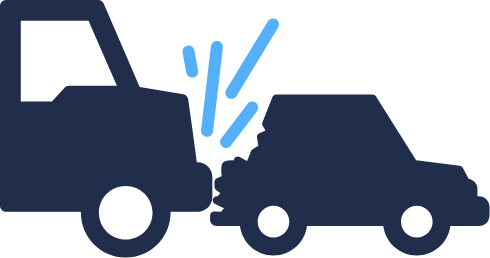Mastering the Art of Transformation: Motor Vehicle Accident Leads into Profitable Relationships

The road to success for businesses and professionals in the legal field is increasingly being paved by the effective use of motor vehicle accident leads. But what are these leads, and how can they be transformed into profitable relationships? To better understand, let’s explore some of the intricacies of motor vehicle accident leads, and touch on steps for mastering their acquisition, conversion, and the sustenance of beneficial client relationships.
Understanding Motor Vehicle Accident Leads
What are Motor Vehicle Accident Leads?
Motor vehicle accident leads are important to numerous businesses within the legal sector. They refer to information about individuals who have been involved in car accidents and may require various services, from legal representation to advice. The importance of these leads is rarely overstated; they are often an essential tool for professionals seeking to extend their services to those in immediate need.
Origin of Motor Vehicle Accident Leads
Leads can originate from various sources, ranging from online platforms, and public records, to word-of-mouth and direct referrals. The technology employed in gathering these leads ranges from sophisticated data mining tools to simple database searches. However, it's key to navigate the legal and ethical implications carefully when acquiring such sensitive information. As such, when gathering leads, it’s essential to ensure that you’re familiar with and remain in compliance with all applicable ethical guidelines, regulations, and laws.
The Market Dynamics
Understanding the size and potential of the market for motor vehicle accident leads is essential. Key players include law firms, medical practitioners, and lead generation companies. With the right approach, law firms may be able to pursue optimal outcomes. In recent years, the prevalence of lead-generating services has been notable, and this industry may continue to grow in the coming times.
However, it’s important to understand that this can be a complex market. In addition to economic considerations such as cost and revenue, it’s essential to ensure that you adhere to applicable laws and ethical guidelines to ensure that leads are generated in a manner that is legal and ethical.
Lead Conversion: A Step-by-step Guide
Initial Contact and Building Rapport
The first contact with a lead can sometimes be a make-or-break moment. It's often vital to create a positive first impression through empathy and timely responses. Building rapport is about establishing a relationship that transcends mere transactional exchanges.
Qualification Process
Not all leads are equally viable. The qualification process involves understanding the unique needs and circumstances of each lead and determining the most suitable solution or service for them. This process may involve understanding how well the firm’s offerings, capabilities, and expertise of experts within your firm, can align with the needs of a potential client.
Crucial Conversations and Follow-ups
Conversations about the services offered must be handled with care, ensuring they are tailored to the lead's needs. Personalized follow-ups can be an important part of this process, underscoring to potential clients that you’re committed to providing services that will meet their unique needs.
Sustaining Profitable Relationships
Client Satisfaction and Retention
Satisfied clients are typically a valuable asset of a business. Ensuring superior service delivery, regular check-ins, and relevant communication are often pivotal for client satisfaction and retention. Client satisfaction can be important for several reasons. Not only can this be influential in your firm’s reputation, but it can help you cut down costs associated with marketing and new client acquisition should satisfied clients return or recommend your services to others.
Ongoing Support and Services
The needs of clients can be multifaceted and evolving. Businesses must be flexible and adaptive to provide long-term support and services to their clients. As such, it’s also often important for legal firms to find ways to ensure that they have suitable offerings to retain clients.
Upselling and Referrals
A satisfied client is not just a source of repeat business but also a potential advocate. Encouraging clients to provide referrals can significantly amplify business growth. Satisfied clients that encourage others to seek your services can be a huge boost to your firm.
Utilizing Technology for Efficiency
Lead Management Systems
The integration of lead management systems can greatly enhance the efficiency of the lead conversion process. Such systems can streamline workflows and ensure no opportunity is missed. To choose the right software for your needs, it will be essential to determine which capabilities these needs hinge on so that they can be compared to the offerings of software solutions you consider.
Data Analysis and Insight Gathering
A data-driven approach can provide valuable insights into the lead conversion process, helping to refine strategies and achieve better outcomes. Using this data, it can be important to hone your process over time — enabling you to review and update your approach over time for more optimal outcomes.
Automation of Routine Tasks
Automation can free up valuable time for professionals to focus on more complex tasks that require a human touch, ensuring the balance between efficiency and personalized service. As such, it’s important to carefully consider which tasks you automate, ensuring that you retain a human touch in your efforts and improve efficiency at the same time.
Navigating the Legal and Ethical Maze
Legal Regulations Governing Lead Acquisition
Navigating the legal landscape is essential for any business dealing with motor vehicle accident leads. Informed consent, data protection, and privacy laws must be adhered to strictly. Generating leads falls under the broader category of legal marketing, and can be regulated at the state, federal, and even local levels. As such, you must be familiar with and adherent to any applicable laws that govern the process of lead generation and marketing in your jurisdiction.
Ethical Consideration in Motor Vehicle Accident Leads Business
Transparency and honesty must be the guiding principles in all interactions. As such, it’s critical to ensure that you take a transparent approach to lead generation and adhere to applicable ethical guidelines within the domain.
Legal Ramifications of Unethical Practices
Unethical practices can lead to severe legal consequences. Understanding these risks and the importance of compliance is critical for any business in this domain. Legal marketing is highly regulated, and you must be aware of any applicable laws surrounding your lead generation efforts and comply with them.
Conclusion
The journey from acquiring motor vehicle accident leads to nurturing profitable relationships can be complex, but is often worth exploring. By understanding the market dynamics, mastering the lead conversion process, and maintaining ethical and legal standards, businesses can better work to leverage the full potential of these leads — offering their crucial services to those in need and to whom their services are well aligned.
Frequently Asked Questions:
What role does technology play in managing motor vehicle accident leads?
Technology, particularly lead management systems, can help businesses efficiently track, nurture, and convert leads, as well as analyze data to refine marketing strategies and improve client service.
Are there legal considerations to keep in mind when dealing with motor vehicle accident leads?
What are some ethical guidelines for handling motor vehicle accident leads?
Ethical guidelines include ensuring transparency in advertising, respecting client confidentiality, avoiding aggressive sales tactics, and providing honest assessments of what the client can expect from your services.
What could be the consequences of unethical practices in lead generation and conversion?
Unethical practices can result in legal penalties, loss of license, damage to reputation, and the potential for lawsuits or other legal actions against the firm.
Whether you’re looking for more insights, or to find new ways to seek sustainable growth and change the way you approach lead generation, be sure to reach out. At Legal Growth Marketing, we’re here to help law firms like yours unlock new avenues for growth and operations. Don’t hesitate to book a meeting today.



